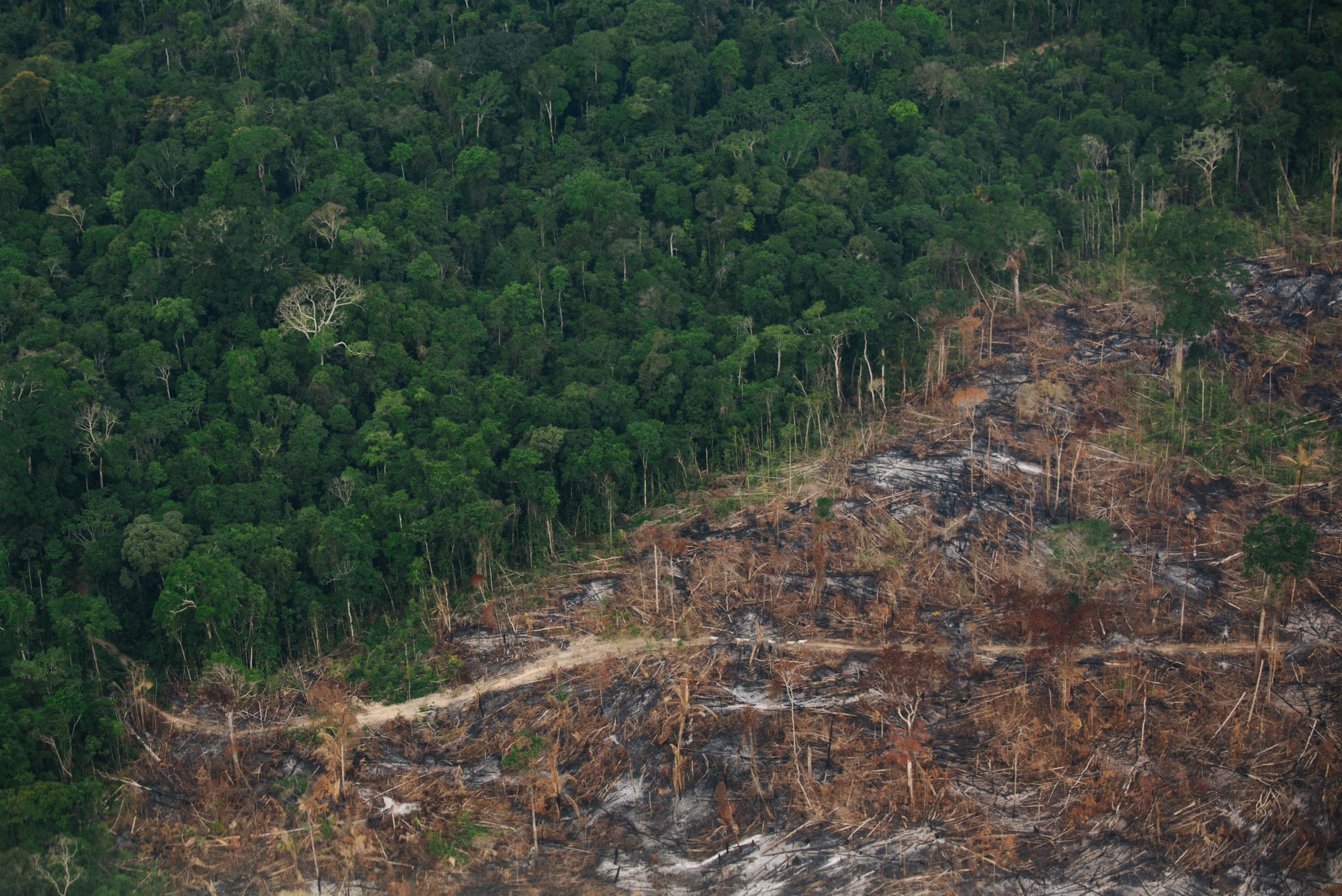On Amazon Rainforest Day, a new poll shows that an overwhelming majority of Europeans (82%) believe businesses should not sell products that destroy the world’s forests and think (78%) that the government needs to ban products that drive deforestation. When informed that the European Parliament has proposed such a law, support rises to 81 per cent.
This is one of several results emerging from a new poll of nine countries across the North, South, East and West of the European Union (EU), conducted in July by market research firm Globescan for a broad coalition of consumer and conservation organisations.

Poor business performance shows the need for regulation
EU citizens consider the institutions most responsible for protecting forests to be performing the worst. Almost half of Europeans (46%) across all countries surveyed expect large companies to be the most responsible player in protecting forests. This belief was particularly strong among people with high-incomes and those who live in rural areas.

However, a large majority of Europeans (64%) believe big businesses are performing the worst when it comes to preventing deforestation, reinforcing the call to regulate the market to ensure only deforestation-free products are sold in the EU.

Shoppers are willing to turn their back on retailers and companies linked to deforestation
Nearly three in four Europeans (73%) say they are ready to act against businesses that make or sell products which drive deforestation – by stopping buying from them altogether (37%), or by reducing how much they buy from them (36%). A smaller part of this group (15%) would go as far working to convince others they know to stop buying from them.
The risk of losing customers because of ties to deforestation is especially high in Spain and Italy, where nearly half would fully stop buying products from these companies.

Crunch time in the European Parliament next week
Next Tuesday 13 September, the European Parliament will vote on a new law that aims to guarantee citizens that the products they buy in the EU are deforestation-free. The poll shows that 8 in 10 Europeans support this deforestation-free law (81%) – at a much higher rate than support EU laws in general (32%).

This support is observed across voters of all the largest political parties in Europe and all age groups, with stronger support among those over 45.

Moreover, an overwhelming majority of Europeans support the strengthening of the deforestation-free law
Over 8 in 10 (81%) Europeans believe that, in addition to addressing deforestation, the law should require companies to stop selling products that violate the land rights of Indigenous Peoples.

Similarly, 82 per cent of people surveyed think the law should cover products that degrade as well as destroy the world’s forests.
Deforestation is the biggest environmental concern across most EU countries, with almost 8 in 10 Europeans (77%) saying they are worried about the destruction and degradation of the world’s forests.
Carlo De Masi, President of the Italian consumer association Adiconsum, said: “The difficulties we are going through, with the energy crisis, the steep increase in the prices of goods and services, starting from those of basic needs, and the pandemic, must not make us forget that there can be no development without sustainability. Protecting fragile forests and ecosystems means ensuring continuity of the natural resources we need. I am pleased that the Italians in the survey are among the staunchest supporters of the law against deforestation. We hope that the European Parliament will join European consumers and support a strong EU Deforestation-Free Law.”
Ana Tapadinhas, General Director of DECO, the Portuguese Association for Consumer Protection, said: “Consumers are increasingly informed and recognise the impact of their choices on nature, namely in contributing to deforestation, climate change and biodiversity loss. Portuguese consumers expect MEPs to take their responsibility and support new legislation to reduce the impact of EU consumption on nature and human rights.”
David Sánchez, Director of Spanish consumer confederation CECU, said: “Once again, consumers urge companies and governments to take action against deforestation. Therefore, the only option for MEPs and the national governments is to support an ambitious position on this law to ensure companies stop selling products that destroy the world’s forests.”
Julia Christian, campaigner at Fern, said: “A major takeaway from this poll is that Europeans want their leaders to be bolder in tackling the scourge of deforestation. They clearly want MEPs and EU governments to strengthen the draft law. Specifically, Europeans overwhelmingly want the law to require companies to stop selling products that were made by grabbing the land of Indigenous Peoples, who are the best guardians of the forests. MEPs need to show leadership and vote for a strong regulation that requires businesses to uphold communities’ land rights in line with international standards.”
Almost 1.2 million citizens called on the EU to pass a strong regulation to stop imported deforestation, uniting their voices in the #Together4Forests campaign.
Europe is one of the largest drivers of global deforestation in the world, second only to China. Industrial agriculture drives almost 90 per cent of tropical deforestation, according to the Food and Agriculture Organization of the United Nations (FAO).
This consumer survey, conducted by GlobeScan, was commissioned for a broad coalition of environmental and consumer organisations including Fern, WWF EU Office, Ecologistas en Acción, Envol Vert, Deutsche Umwelthilfe, CECU, Adiconsum, Zero and Verdens Skove. The aim was to understand consumer attitudes towards the EU Regulation on deforestation-free products in Austria, Czechia, France, Germany, Italy, The Netherlands, Portugal, Spain and Sweden. Any references to results among Europeans in this press release shows the pooled survey results across the nine countries surveyed.
All figures, unless otherwise stated, are from Globescan. The total sample size was 9,000 mainstream consumers across nine EU countries. Nationally representative samples of n=1,000 consumers per market.
The survey was conducted between 10 July 2022 and 28 July 2022 using established online panels.
Quotas were set by age, region, gender, and education. The final sample is weighted to reflect the general population as per the latest available census data.
See original article on Fern’s website.


